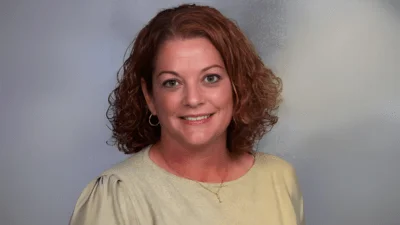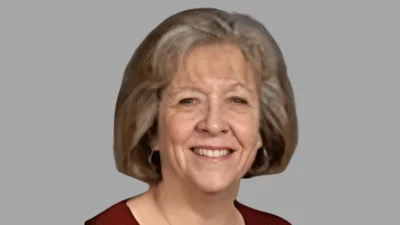At an April 11 meeting of the House Appropriations Human Services Committee, Democrats questioned redacted emails and Freedom of Information Act (FOA) requests related to the Quincy Veterans Home, but two Republicans kept their questions to budget requests.
While Illinois Department of Public Health Director Nirav Shah and Veterans' Affairs Director Erica Jeffries referred many of the questions asked by Democrats to Gov. Bruce Rauner’s legal team, they were happy to answer budget-related questions from Rep. Tom Demmer (R-Dixon) and Rep. Ryan Spain (R-Peoria).
“I know there are many important and pressing issues that you have been involved with in countless hours of hearings, but as this is the Human Services Appropriations Committee, I would like to talk to you about your budgets you presented,” Demmer said.
Rep. Tom Demmer (R-Dixon) at the April 11 House Appropriations Human Services Committee Hearing
Demmer asked Jeffries about budget requests for capital items and wanted to know about specific services related to the Quincy Veterans Home.
“Can you talk about some of the work in the budget and about what has been done, what is being done and is included in the upcoming budget proposal,” Demmer asked.
Most of the budget request remains flat, according to Jeffries, who said funding is for short-term maintenance and continued operation at the Quincy home for ongoing chemical treatment of the water system.
“We will be undertaking a massive construction project and we will be submitting a report and proposal to the Joint Veterans Committee of the House and Senate to request appropriation for that,” Jeffries said, referring the proposed demolition, construction and renovation of a new facility adjacent to the site. “Those projects will all fall under a capital bill.”
The increases in the budget before Demmer include water filters, chemical treatment and water testing, Jeffries said,
“You mentioned the filters are on each faucet at every point of use throughout the facility already so the money that’s included in the budget is for the upcoming year, but what is the future expense and the fact that so much has already been done,” Demmer asked.
The filters have to be replaced every 30 days, according to Jeffries, and is an ongoing operational cost as are the chemical treatments that must be purchased quarterly. Demmer was told no additional staff was needed to perform the services.
“We are here to talk about your budget and I hope we can focus in on that,” Spain said before specifically asking Shah about the cost of rapid response to synthetic cannabinoids in parts of Peoria and parts of Chicago.
Working with local health departments, the Centers for Disease Control and Prevention, and the Federal Department of Drug Administration has been a way to manage cost up until last year, according to Shah.
“Sadly, in the last year, federal funding that we receive through Public Health Emergency Prepared Program has gone down,” Shah said, adding the reduction in funds has caused an increase in the budget request, specifically for additional staff to help combat effects of dangerous street drugs causing overdoses in the state.
“Are there any opportunities for us as a state to be more innovative in pursing different avenues for funding,” Spain said. “We are all woefully aware in this committee of the lack of federal funds to make their way to Illinois.”
Some funds are on the horizon, Shah said. “We have a team of folks writing grants,” Shah added. “It is one of our top priorities.”
Spain queried Shah about his response to the opioid crisis. Shah said prevention work and additional staff are included in the budget numbers to attack the drug-related disaster.






 Alerts Sign-up
Alerts Sign-up